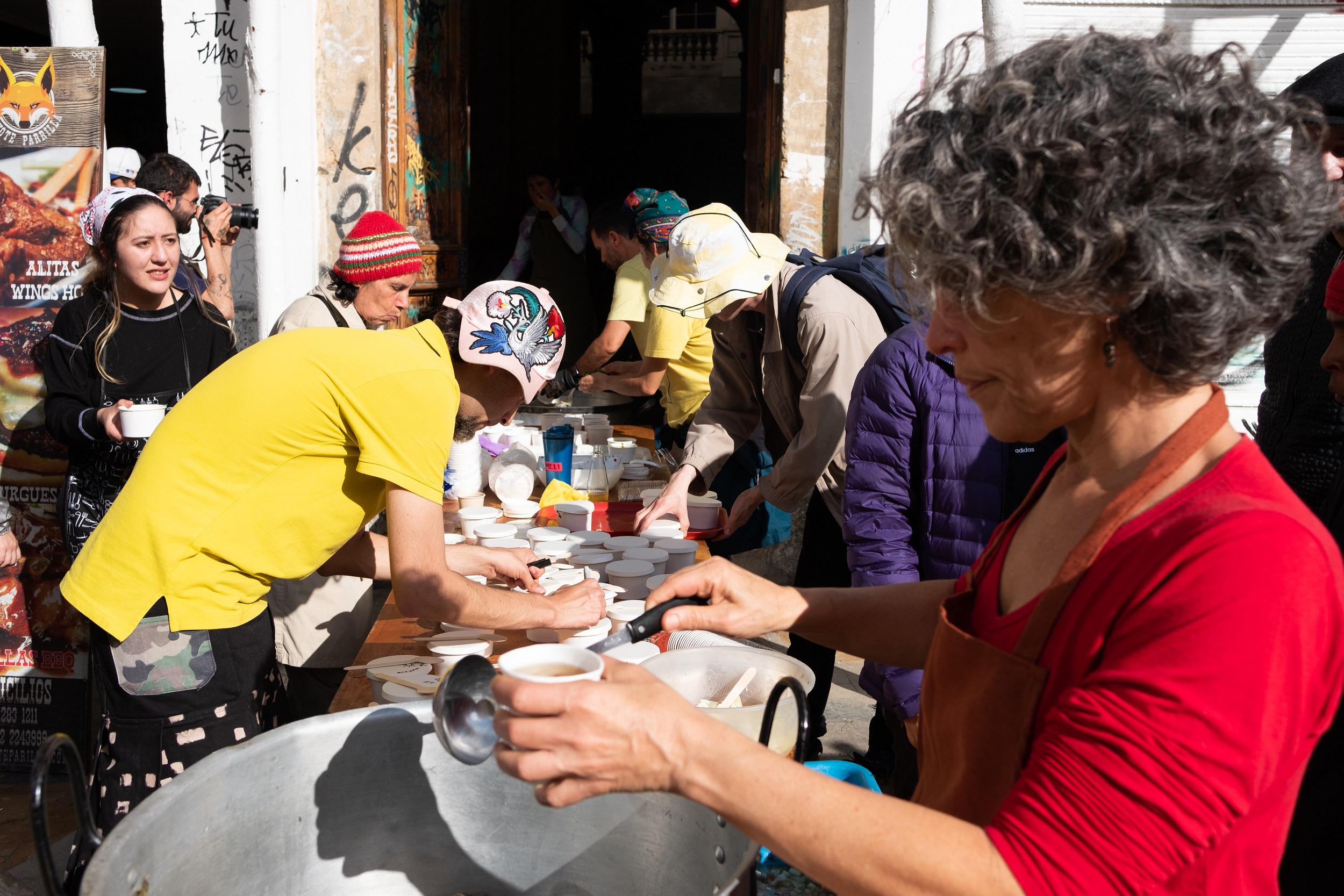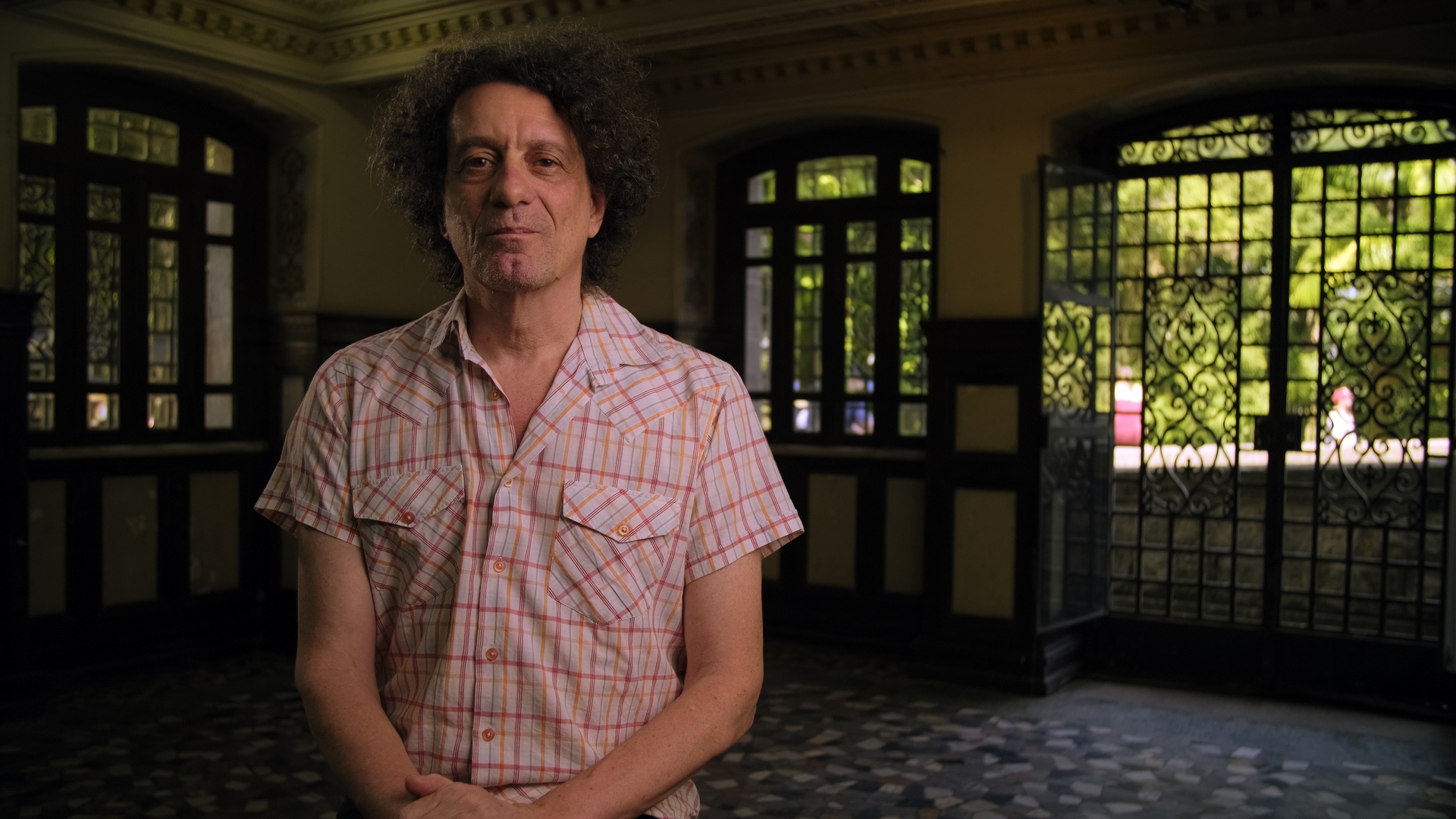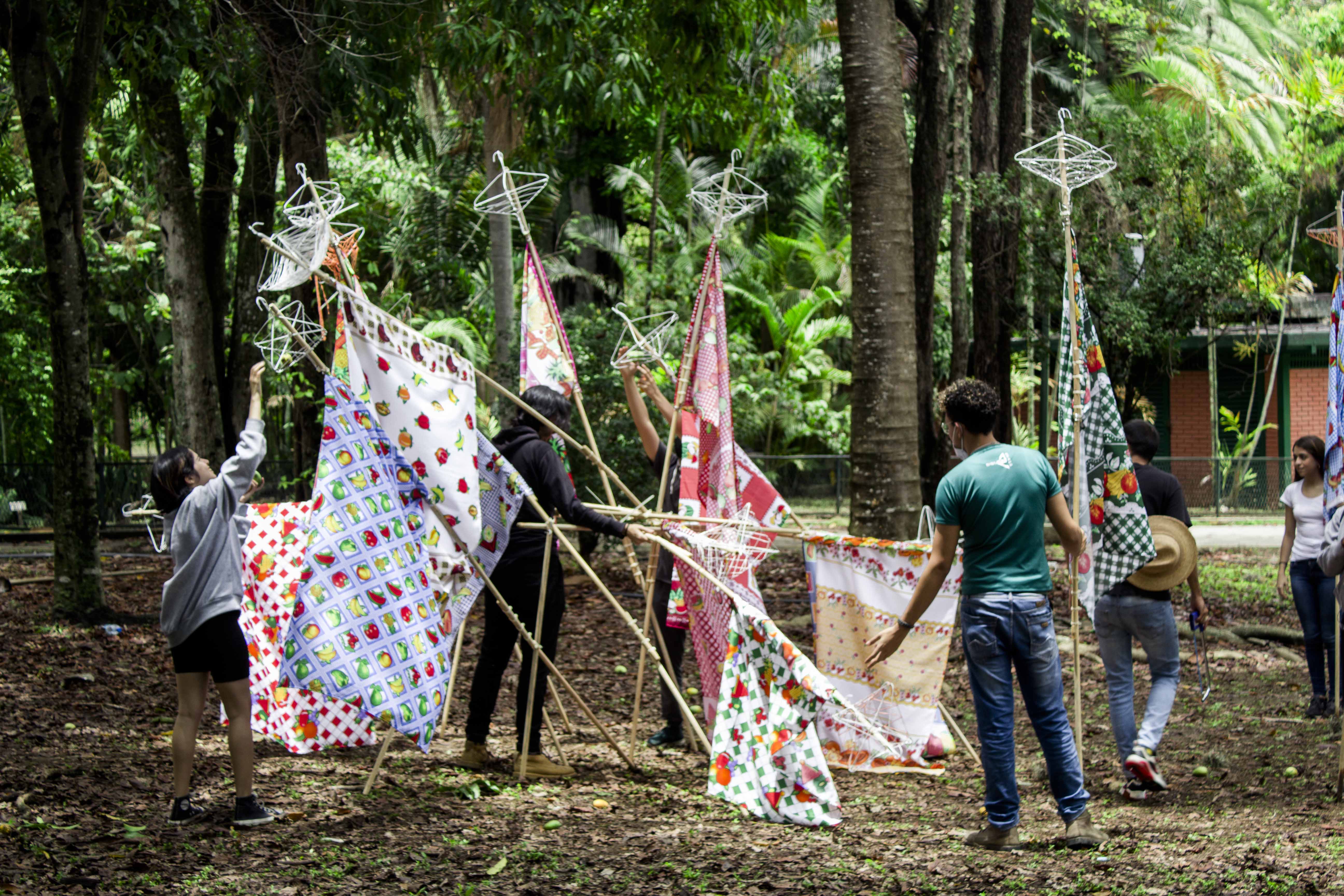The CLASSROOM proposed by Menna Barreto and Brantes will consist of critical-metabolic-reflective sensitization exercises, inviting our bodies and digestive systems to participate in eco-gastronomic practices and kinesthetic movements, as well as visits to urban gardens in Bogotá to get to know these spaces and their caregivers. A second moment will be a public intervention in downtown Bogotá, where the spontaneous public will be invited to participate in a ritual of preparation and consumption of some of the foods collected during the visits to the gardens.
Jorgge Menna Barreto Eloisa Brantes
Metabolic Disobedience
past
Bogotá, Colombia
2022—II
10/17/2022 — 10/25/2022
Formative project developed in alliance with the Master in Performing Arts program of the Universidad Nacional de Colombia, together with Mapa Teatro and Plural Nodo Cultural; with participation from students of the Faculty of Arts UNAL, and support from the University of California Santa Cruz and the Universidade do Estado do Rio de Janeiro.
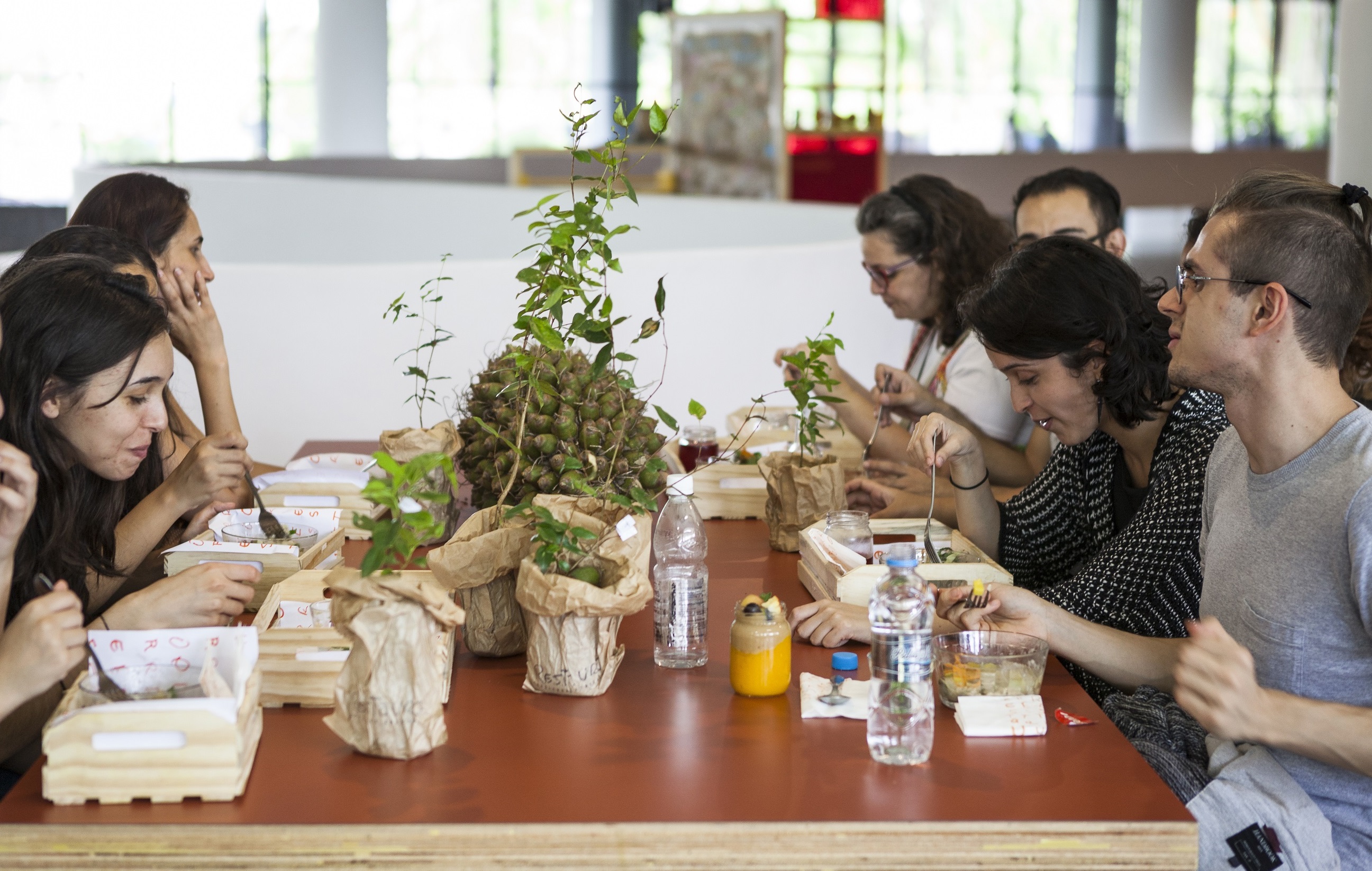
“One of the atrocities created by European modernity is the countryside/city fracture. Here in the south, we are heirs of this model and have become accustomed to the idea that has been imposed on us that in the urban environment is where great knowledge and high culture are produced; in the rural, there remains the minor task of supplying raw materials and producing food.”
Vital resources—humans, plants, animals, water and minerals—are sucked up by the concrete, asphalt and glass jungles, which reciprocate with abstract currency, always in unequal proportion so that the games of hierarchy and oppression are maintained. In addition to unfair exchanges, there are also the serious environmental and social implications of extractive practices that deplete the earth of its vitality. Chemical compounds (purchased) need to be added to the soil to compensate for the exodus of life from the countryside. Urban gardens also create holes, but in this hierarchical relationship.
By drilling into modern asphalt, they open windows in time and help to destabilize the rural/city dichotomy. From an archaeological point of view, such cracks provide access not only to land that can produce food in the middle of urban areas but also to the memory of that territory before colonization. These history-filled holes can be described from this spatial perspective, as we have done so far. However, because they also produce food, they can tell stories of resistance to our viscera.
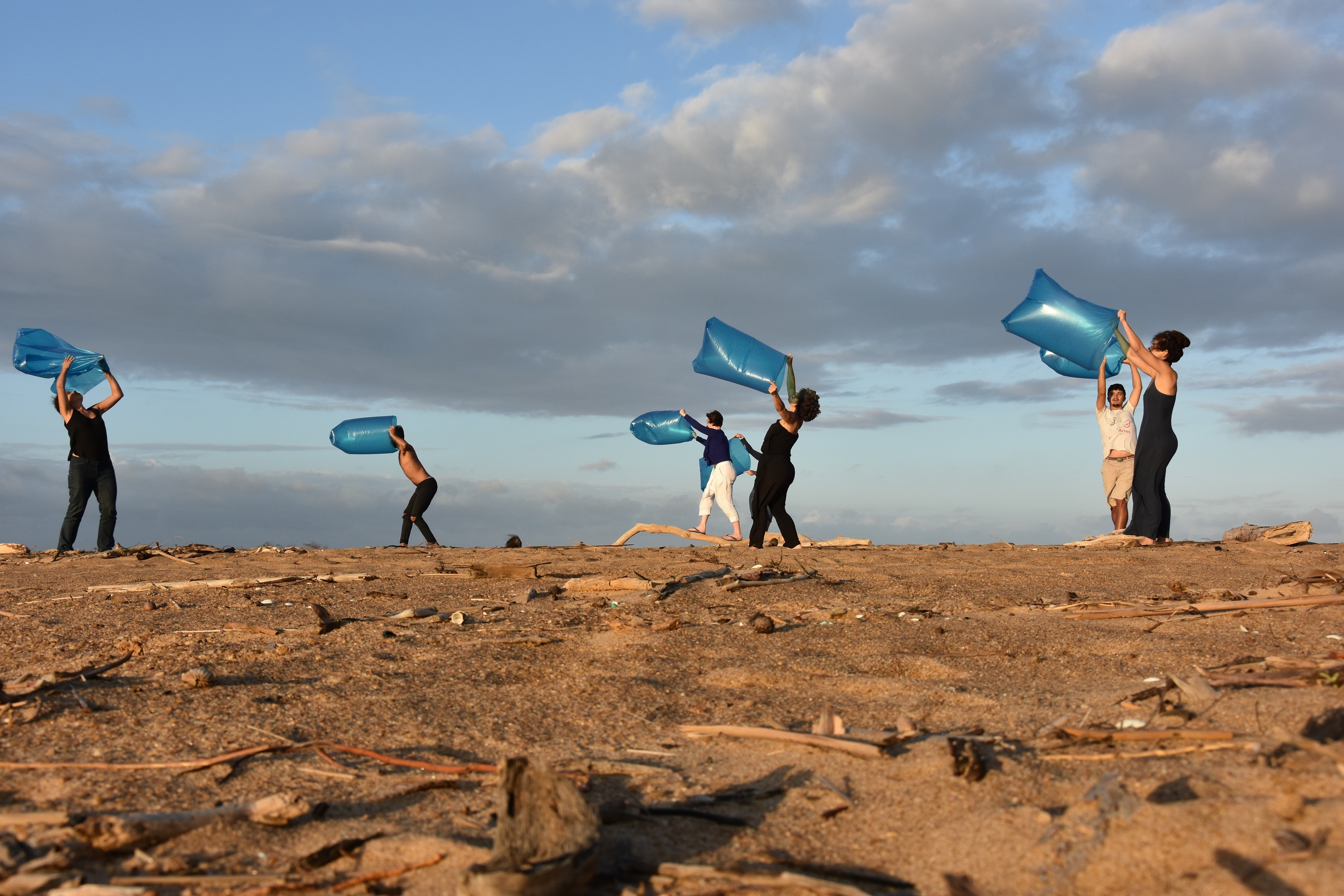



The way of cultivation against the grain, outside the pre-established context of the city/countryside fracture, informs these foods with disobedience, making them witnesses of a decolonial process. As well as calories, minerals and vitamins, these fruits also carry irreverent information: they are guerrilla foods. Visually, they may not differ much from those found on the domesticating shelves of supermarkets. However, its molecular composition contains the cry of the suffocated earth, which is dying to be heard. This recognition is not only given by our ears, but by our viscera and cells.
By incorporating this food, we put ourselves in a visceral relationship with these spaces of disobedience. What sensory movements can arise from this metabolic experience? To bathe our cells with these lessons of disobedience is also to move collectivities, intra and extra corporeal, satisfying a little of our secular hunger for belonging as we rescue the maximum condition of food as a mediator of the relationship between earth and society.
Jorgge Menna Barreto
(Araçatuba, Brazil, 1970) Artist and educator. For more than 20 years, his practice and research has been dedicated to site-specific art. Since 2014, he has investigated possible relations between site-specificity and agroecology, with a focus on agroforestry. Menna Barreto is an assistant professor at the Art Department of the University of California Santa Cruz, where he also teaches at the new MFA in Environmental Art and Social Practice. He collaborates with the Art Graduate Studies at Universidade Estadual do Rio de Janeiro, where he coordinates, together with Eloisa Brantes, the research group Ambientalidades.
Eloisa Brantes
(Volta Redonda, Brazil, 1968) Performing artist and professor. PhD in Performing Arts from Universidade Federal da Bahia (UFBA). Founding artist, director and performer at Coletivo Líquida Ação (Rio de Janeiro) which, since 2007, has been carrying out urban interventions and performances based on the presence of water in different socio-environmental contexts. Eloisa researches water as a mediating element of bodies and environments. Professor at the Art Department of the Universidade Estadual do Rio de Janeiro (UERJ), where she coordinates the Ateliê de Performance extension project, and collaborates with their Graduate Programme. She coordinates the research group Ambientalidade, together with Jorgge Menna Barreto.
CLASSROOM
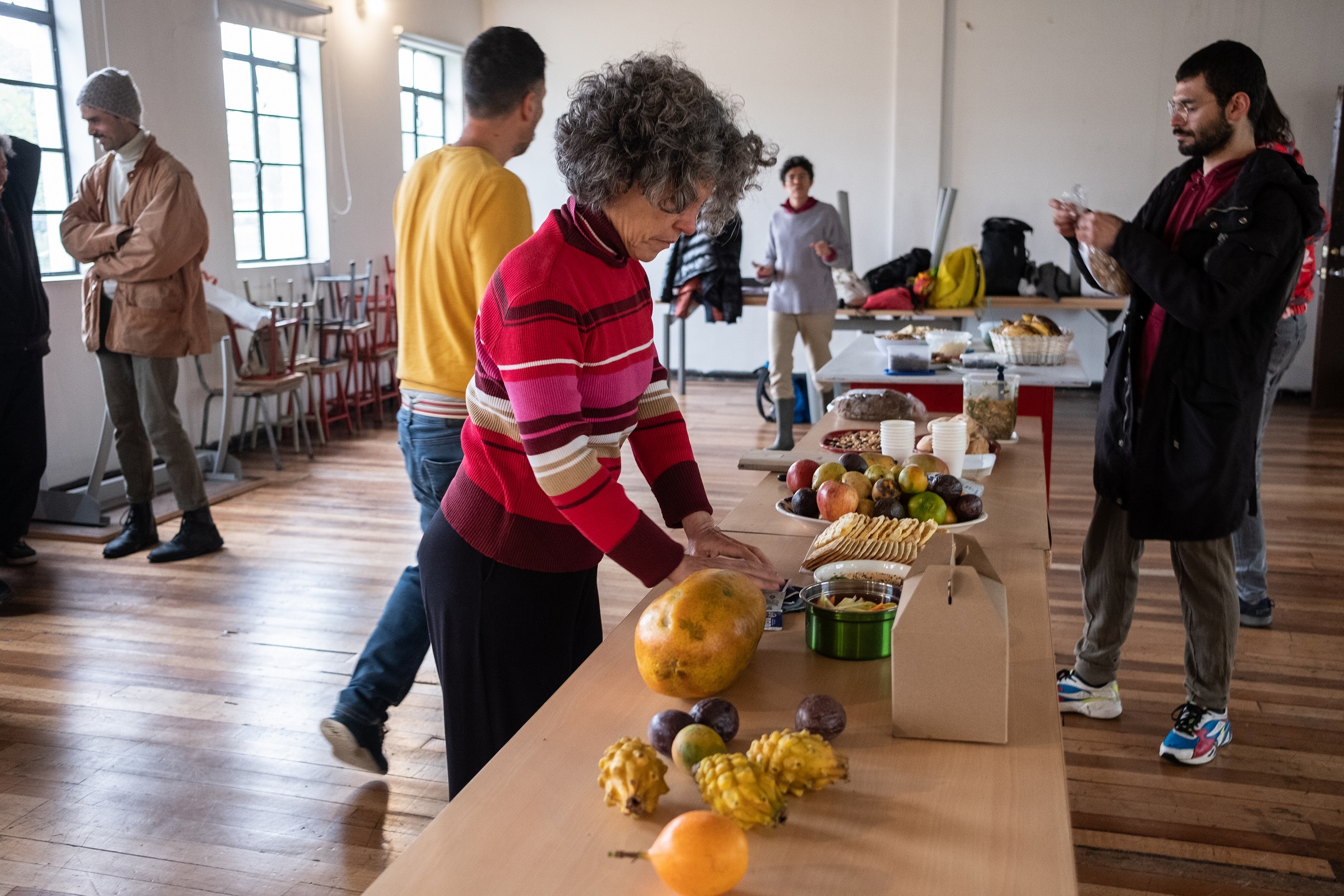









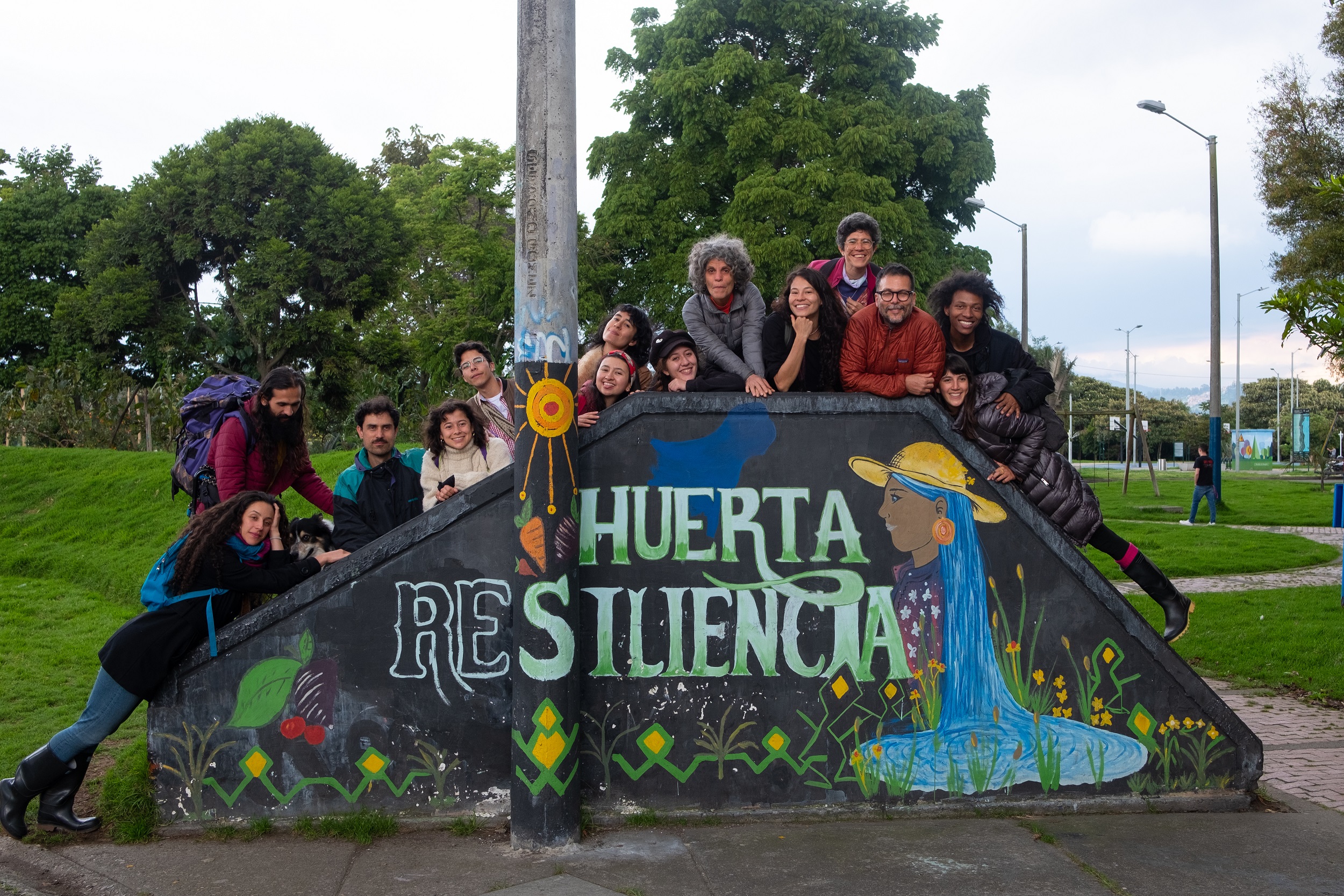







Public performance
